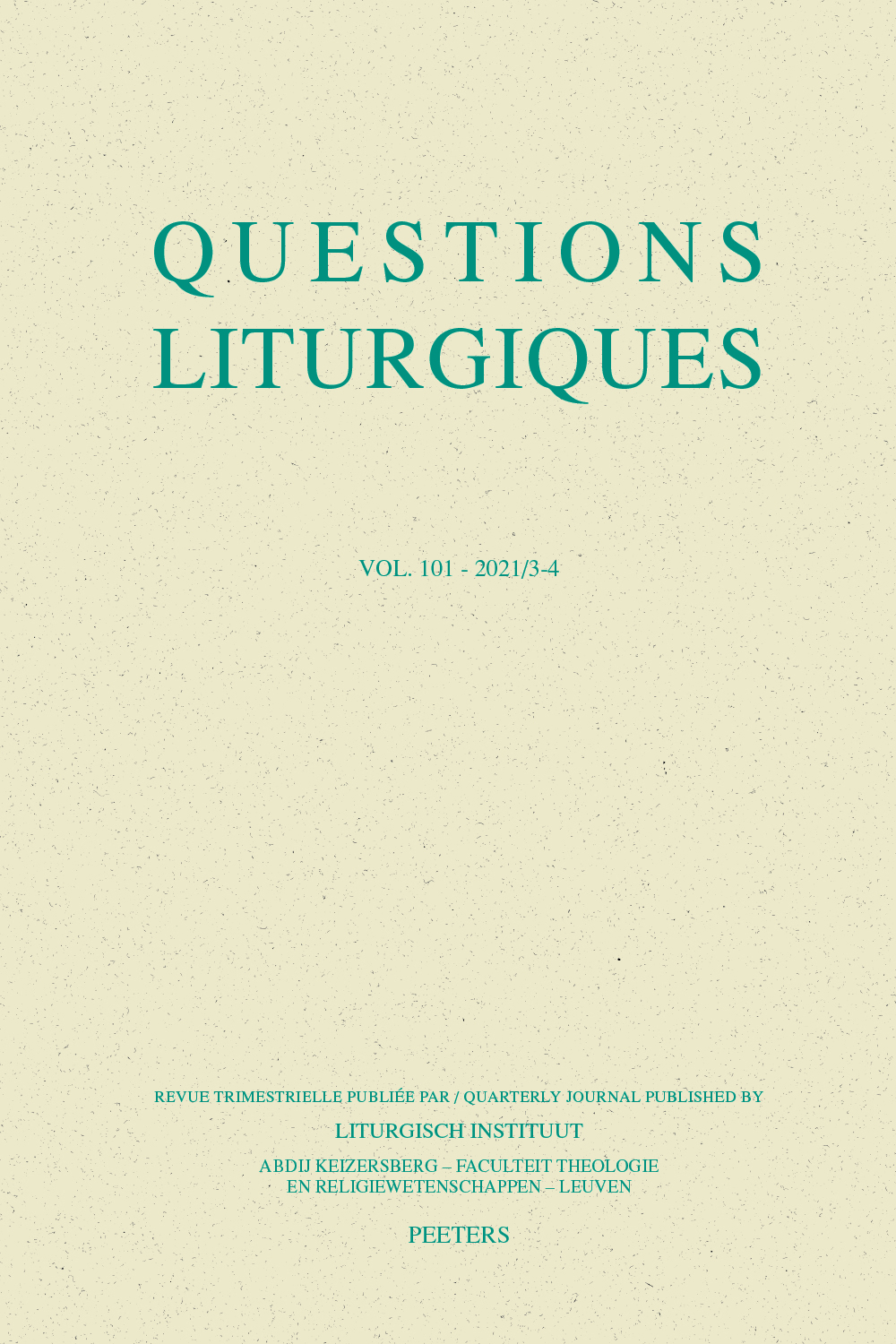 previous article in this issue previous article in this issue | next article in this issue  |

Preview first page |
Document Details : Title: Community and Participation Subtitle: Theological Correspondences between Johann Baptist Hirscher and the Liturgical Movement Author(s): GOYVAERTS, Samuel Journal: Questions Liturgiques/Studies in Liturgy Volume: 91 Issue: 4 Date: 2010 Pages: 201-212 DOI: 10.2143/QL.91.4.2067478 Abstract : Johann Baptist Hirscher (1788-1865) is one of the founding members of the Tubingen School. Unfortunately, the history of theology has predominantly focused attention on his colleagues Johann Sebastian Drey and Johann Adam Möhler. The Tubingen School itself has never been widely 'received' when it comes to the history of liturgy; only few traces or a cursory mentioning of it can be found in liturgical handbooks and overviews. Nevertheless, Hirscher was from the very outset of his academic career strongly concerned with the celebration of the liturgy. Reflection on ‘Kult und Kultreform’ served as one of the main topics in almost all of his writings, including his famous 'Die Christliche Moral'. Moreover, intensive study from the perspective of liturgical studies and sacramental theology reveals a remarkable resemblance between Hirscher’s work and the important issues that arose in the 20th century Liturgical Movement. Particularly interesting is Hirscher’s emphasis on the active participation of the laity and on an authentic celebration of the liturgy with the whole community. Relying on Drey’s ideas on the Kingdom of God, Hirscher states that this Kingdom is anticipated and even effectively manifested through communal worship. This fundamental conviction leads him additionally to advocate a liturgy in the vernacular and other practical reforms. Hence, this present contribution, highlights the relevance of Johan Baptist Hirscher’s thinking about the liturgy and the theology of the Eucharist. More particularly, a comparative and descriptive analysis is developed, which explores the common ground between this rather unknown Tubingen scholar and the 20th century Liturgical Movement. Johann Baptist Hirscher (1788-1865) est un des membres fondateurs de l’école de Tübingen. Malheureusement l’histoire de la théologie a principalement concentré son attention sur ses collègues Sebastian Drey et Johann Adam Möhler. L’école de Tübingen elle-même n’a jamais été largement reçue dans l’histoire de la liturgie; on n’en trouve que de petites traces ou une citation rapide dans les manuels et bilans liturgiques. Néanmoins Hirscher se sentait au début même de sa carrière scolaire fortement concerné par la célébration de la liturgie. Sa réflexion sur ‘Kult und Kultreform’ a servi comme un des thèmes principaux dans presque tous ses écrits comme dans son célèbre «Die Christliche Moral». D’ailleurs, l’étude approfondie des oeuvres de Hirscher en vue des études liturgiques et de la théologie sacramentelle découvre une ressemblance remarquable avec les questions importantes qui ont surgi dans le Mouvement Liturgique du 20ème siècle. Particulièrement intéressant est l’accent que Hirscher a mis sur la participation active des laïcs et sur une célébration authentique de la liturgie avec la communauté toute entière. S’associant aux idées de Drey sur le Royaume de Dieu, Hirscher déclare que ce Royaume est annoncé et même manifesté d’une manière efficiente par la célébration de la communauté. Cette conviction fondamentale le mène à préconiser une liturgie dans la langue vernaculaire et l’introduction de bien d’autres réformes pratiques. Par conséquent, cet article atteste la contribution de la pensée de Johan Baptist Hirscher à la liturgie et à la théologie actuelle de l’eucharistie. En particulier, une analyse descriptive et comparative est développée qui explore le terrain d’entente entre ce savant plutôt inconnu de Tübingen et le Mouvement Liturgique du 20ème siècle. |
|


